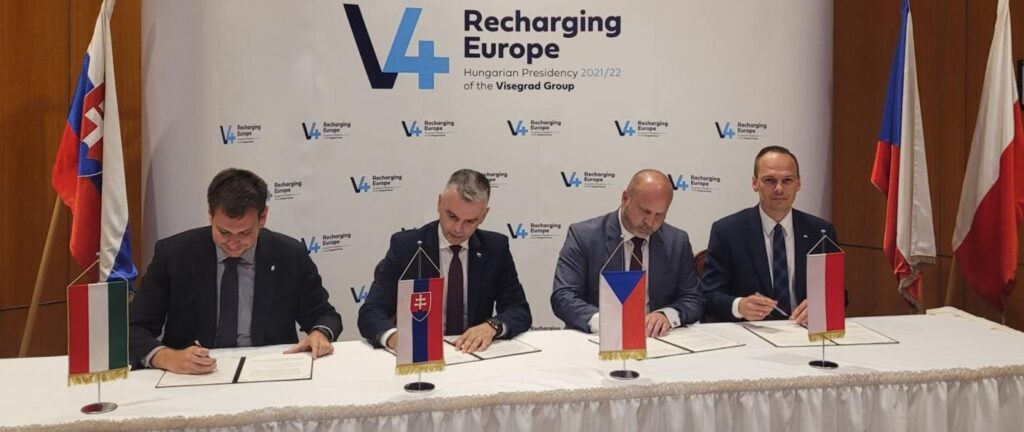Blog
Motor Transport Institute responsible for CCAM tests
On June 23 and 24, 2022, Deputy Minister of Infrastructure Rafał Weber took part in a meeting of transport ministers of the Visegrad Group countries (V4). The meeting in Budapest was organized by the Hungarian Presidency of the V4, which ends on June 30, 2022. The meeting was also attended by the Hungarian Deputy Minister for Innovation and Industry – Dávid Vitézy, the State Secretary of the Ministry of Transport and Construction of the Slovak Republic – Jaroslav Kmet’ and Deputy minister of Transport of the Czech Republic – Václav Bernard.
The key topics of the conversation were the mutual relations of the V4 countries in the field of, among others, the ongoing revision of The Trans-European Transport Network (TEN-T) guidelines and the construction of high-speed rail (HSR) connections. A lot of attention was focused on joint actions that the V4 countries may undertake and the challenges facing transport as a consequence of Russia’s armed aggression to Ukraine.
One of the agenda items was to discuss the development of the TEN-T and HSR networks, due to the need for coordination and to ensure the coherence and complementarity of infrastructure investments in EU countries, as well as to improve the free movement of people and goods.
Finally, the deputy ministers for transport of Poland, Hungary, the Czech Republic and Slovakia signed a Memorandum on the development and testing of cooperative, connected and automated mobility (CCAM).
The signatories of the Memorandum admitted that digitization is a key element of future mobility systems that must be safe, effective and environmentally friendly, as well as socially sustainable. Technological advances in cooperative, connected and automated mobility (CCAM) offers enormous potential that can contribute to meet the challenges faced by mobility systems, such as significant traffic growth, safety and accessibility needs, changing mobility requirements and increasing emissions of pollutants from the transport sector.
One of the institutions designated in the Memorandum – in the field of environmental research and tests for CCAM – is the Motor Transport Institute, which has many years of experience, also international, supported by special competences in the areas of: automatic and connected vehicles, intelligent transport systems, road safety, transport psychology and vehicle approval.
The Motor Transport Institute’s research on CCAM is conducted at the Connected and Autonomous Vehicles Competence Centre. The main goal of the Center is to provide expert support to the government administration in the efficient and safe implementation of technologies that will autonomize vehicles in Poland, evaluation of these technologies based on the best international practices, at various levels of readiness according to the SAE scale, as well as monitoring and initiating national research areas in the field of autonomous road transport.
Source: Ministry of Infrastructure / own elaboration
Photo: mi.gov.pl


